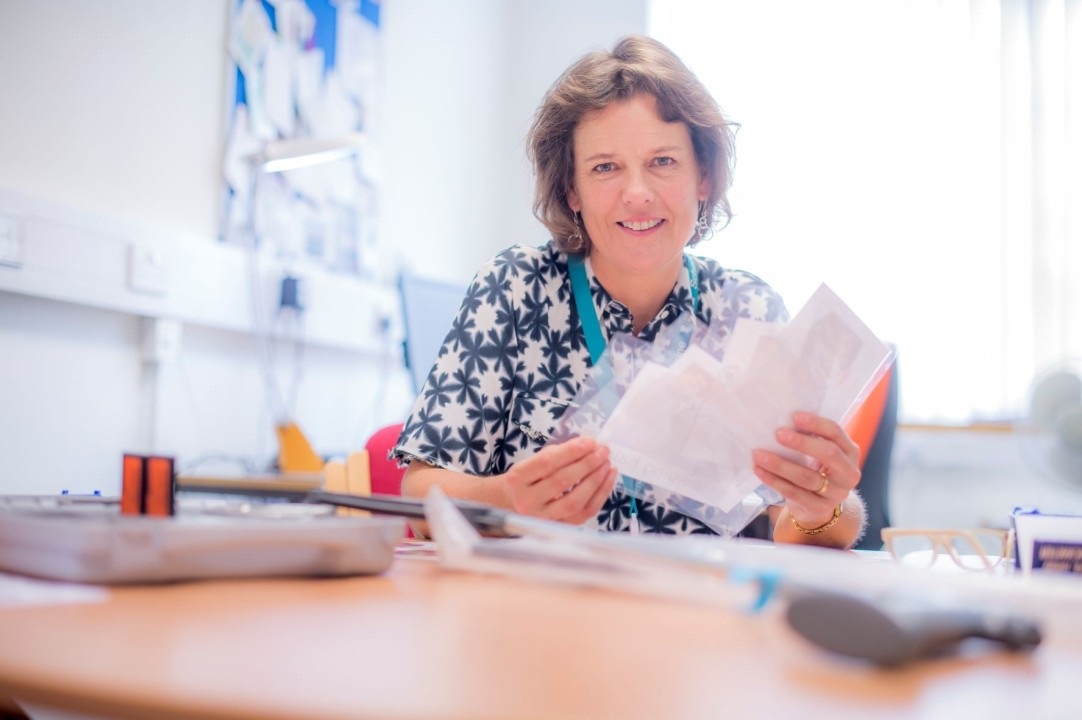
December 10, 2021, by brzam5
Rehabilitation Matters: Research, application, impact
Rehabilitation Matters is a series of stories and perspectives from people who care about effective clinical rehabilitation and the benefits it provides. Professor Pip Logan, Professor of Rehabilitation Research and Occupational Therapist, University of Nottingham, is passionate about how innovative research can shape patient outcomes following serious injury or illness.
I’ve spent a career working to connect three things: research, the application of that research to clinical rehabilitation, and improved outcomes for patients. What does the NRC mean to me? It means something we’ve never had before – a place where all three of these essential elements are integrated to achieve maximum impact.
It bothers me when people think ‘research’ is for academics and somehow detached from the demands and immediacy of ‘real life’. Quite the reverse. Research is the route to better. It’s what enables us to understand differently and to improve. It tells us what works and what doesn’t through evidence. It’s inherently practical.
At the NRC – and within the clinical and academic partnership that is at its heart (NCAP) – we want to drive ambitious and innovative new research that directly shapes the life potential of patients who have suffered serious injury or illness. We want to link research to training, and to connect studies to the specialist care we give patients in ways we can’t at the moment. We want to ask questions, be bold, and push boundaries to help improve or redefine what’s possible.
Let me give you an example. Because the NRC will combine patient care, training and education, and research and innovation under one roof, we’ll have an opportunity for collaboration like no other. So if there’s some fresh thinking emerging from a new patient research study, we can take that, use it to adjust a patient’s treatment plan, and with their permission, put that new plan directly into practice. This massively streamlines what can otherwise be siloed ways of working and means research evidence can have practical application leading to improved treatment plans in the shortest possible space of time. That will lead to better outcomes for patients and to optimisation.
Does that sound far-fetched? I don’t think so.
We – by which I mean us as a community of rehabilitation professionals – know what already works and where we would like to extend the limits of what is possible. We also know that every day is an opportunity to learn something new and to make a meaningful difference to a patient’s life. Progression, innovation, excellence. These all matter. Everyone wants to be better because it’s fulfilling for the professionals and it’s clearly good for the patients.
Alongside my strong feelings on why the NRC will deliver benefits for patients is my conviction it will help the rehabilitation sector of medicine as a whole. As we learn more about rehabilitation and, through evidence-based initiatives, we demonstrate the effectiveness and value of what we do, I genuinely believe we’ll see a shift in the status of the sector and in how rehabilitation is perceived. That can only be a good thing.
I’ve spent 30 years seeking to make a difference and to elevate rehabilitation from a Cinderella service to a position of recognition and this includes developing clinical academic roles for nurses, Allied health professionals and Health Scientists alongside their medic colleagues. The NRC can be a catalyst for this and enable rehabilitation to become a greater part of the conversation about healthy people and healthy bodies.
I don’t say that for any self-serving motive. I just know as a professional and an experienced Occupational Therapist who has worked with many patients recovering from serious illness or injury, that rehabilitation needs to be a bigger part of future discussions on wellness. If we didn’t appreciate that before, we certainly know it coming out of Covid. The pandemic has shown just how long the journey back to full fitness can take for some people, and therefore how important good rehabilitation support really is.
For all of those reasons and more, rehabilitation matters. The evidence is there – you don’t have to take my word for it.
Professor Pip Logan is Professor of Rehabilitation Research and Occupational Therapist, University of Nottingham.
No comments yet, fill out a comment to be the first

Leave a Reply